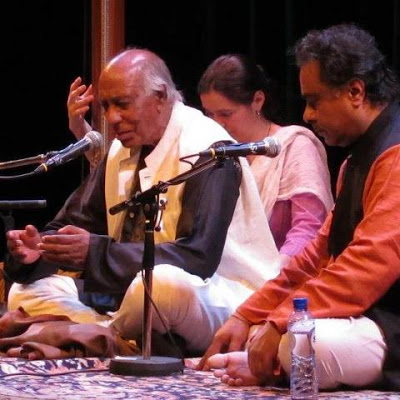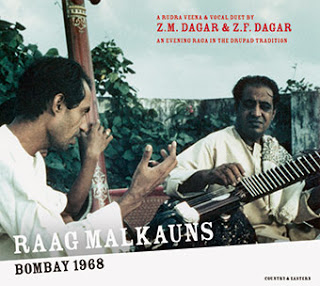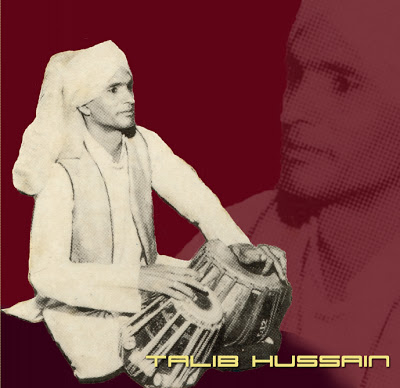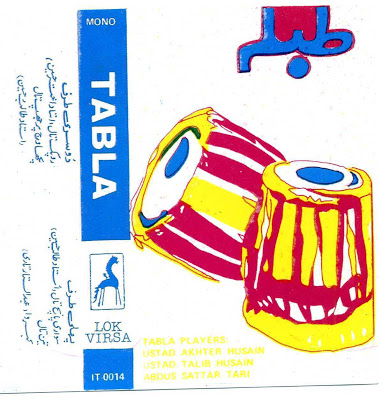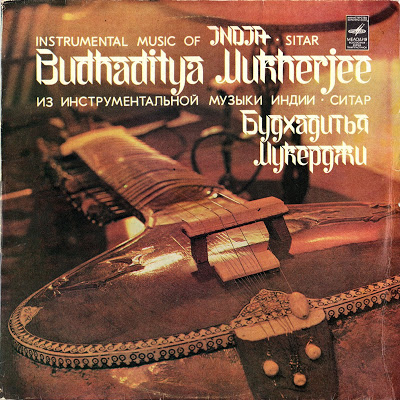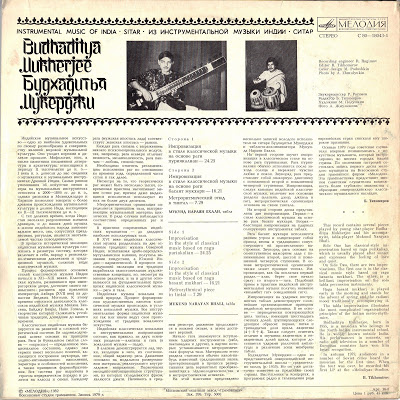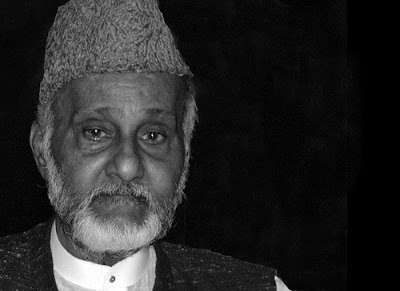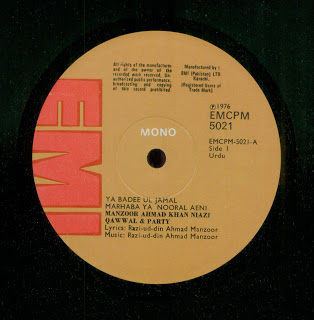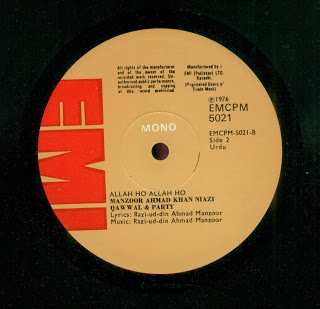Ustad Zia Fariduddin Dagar was born in Udaipur, Rajasthan on the 15 June 1932.
His father was Ustad Ziauddin Khan Dagar, court musician of the state of
Udaipur. He was taught Dhrupad by his father and elder brother, the Veena
maestro, Ustad Zia Mohiuddin Dagar.
Ustad represented the 19th generation of
the Dagarbani musical tradition and has dedicated his life to the propagation of
this art form. He was known for his remarkable command over microtones
(swar-bheda), gamak and other alankarans and lakshans.
He has been the
recipient of many awards a few of which include the Tansen Samman from the
Madhya Pradesh government (1993), the Sangeet Natak Akademi Award (year) as well
as the Padma Shri (2012). In 2005, he was awarded the Lifetime Achievement Award
by the North American Dhrupad Association. He was the first director of the
Dhrupad Kendra, Bhopal and taught there since 1981 for many years.
A large
number of well known Dhrupad performers came from this institute under his
guidance and tutelage, including the Gundecha Brothers, Uday Bhawalkar, Ritwik Sanyal and Nirmalya Dey. He
also taught at Dhrupad Sansar at IIT Mumbai for 5 years. He lived and
continued to teach near Panvel at a Gurukul built by his elder brother. He
performed widely in India and abroad.
More about the artist:
We were very fortunate to have seen him perform still this year in February at the Dhrupad Festival in Rasa, Utrecht, Holland.
Ustad Zia Fariduddin Dagar and Nirmalya Dey on stage at the Dhrupadfestival.
And here in his memory two recordings broadcast by All India Radio:
1. Raga Bhairav (29:10)
2. Raga Suha (29:29)
Available recordings
Z. Fariduddin Dagar (Vocal), Nirmalya Dey & Yvan Trunzler (Vocal Support)
& Shrikant Mishra (Pakhawaj) - The lyrical tradition of dhrupad 9 -
Dagarvani: Raga Chalnat: Alap (29:14), Jor (12:27), Jhala (7:12) & Tevra
(17:52), MAKAR, MAKCD 039, EUR 8,00
Ustad Fariduddin Dagar is the senior
singer of the Ziauddin Dagar style of Dhrupad. As a master performer, he has won
over miriads of listeners, as a master teacher, he has trained almost all of the
new generation's elite of Dhrupad singers and instrumentalists. Ustad Zia
Fariduddin Dagar, born in 1933 in Udaipur (Rajasthan) has been trained by his
father Ustad Ziauddin Khan, court musician of the Maharajah of Udaipur. From him
he learnt vocal Dhrupad of the Dagarvani style but also sitar, bin and
surshringar, and after his demise he learnt with his elder brother, late Ustad
Zia Mohiuddin Dagar. As one of the greatest performers of Dhrupad, he has
performed in numerous concerts in India and around the world. He is the
recipient of the famous Tansen Award, Sangeet Natak Akademi Award, and many
more. Ustad Fariduddin Dagar is one of the most prolific teachers of Hindustani
classical music: he has trained more than a dozen of Indian and Western dhrupad
singers of the new generation like Uday Bhawalkar (MAKCD 008, MAKCD 031), the
Gundecha Brothers, Yvan Trunzler, Nirmalya Dey or Monica Lacombe. He is teaching
in India: Mumbai (Dhrupad Gurukul, founded by his brother), Bhopal (his own
school), Baroda (Madhya Pradesh government's Dhrupad Institute), Bangalore; but
also in the West: Conservatory of Rotterdam, and leads numerous workshops around
Europe and America.
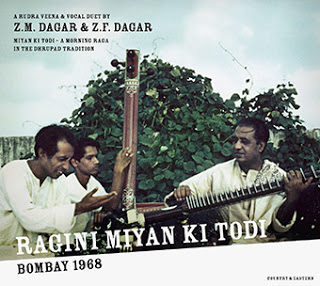
Zia Mohiuddin Dagar (Rudra Veena) & Zia Fariduddin Dagar (Vocal), K. Shridhar (Tanpura) – Ragini Miyan Ki Todi – Bombay 1968 - A Rudra Veena & Vocal Duet by Z.M. Dagar & Z.F. Dagar – Miyan Ki Todi – A Morning Raga in the Dhrupad Tradition: Ragini Miyan Ki Todi – Alap, Jod, Jhala (54:11), COUNTRY & EASTERN, CE 19
“The first release with the rudra veena-vocal duet in
raga Malkauns was recorded in Ustad Zia Mohiudding Dagar's house in Chembur on
the evening of february 4, 1968. On the very next morning he and his younger
brother Ustad Zia Fariduddin Dagar recorded the raga that is the female
counterpart of raga Malkauns, Ragini Miyan Ki Todi. The name means Miyan's Todi
and it is said to have been created by the famous Miyan Tansen, one of the 9
jewels of emperor Akbar's court in the 16th century, as his version of the Todi
raga.”
Zia Mohiuddin Dagar (Rudra Veena) & Zia Fariduddin Dagar (Vocal), Ritwik
Sanyal (Tanpura & supporting vocals) – A Rudra Veena & Vocal Duet – Raag
Malkauns – Bombay 1968 – A Rudra Veena & Vocal Duet by Z.M. Dagar & Z.F.
Dagar – An evening Raga in the Dhrupad Tradition: Raag Malkauns: Alap, Jor &
Jhala (69:16), COUNTRY & EASTERN, CE 02
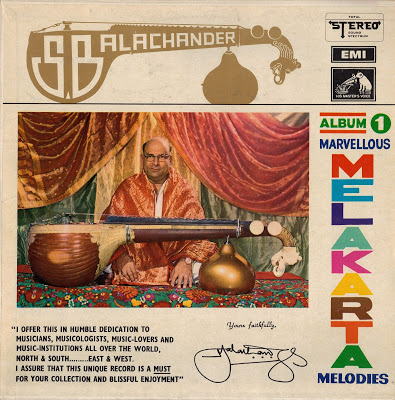
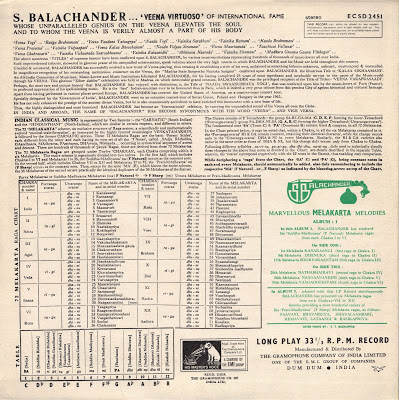
%20-%20front.jpg)
%20-%20back.jpg)
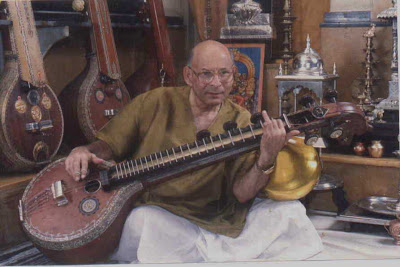
%20-%20front.jpg)
%20-%20back.jpg)

